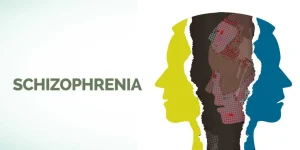Introduction:
Paranoid schizophrenia is a severe mental health condition that impacts an individual’s ability to think clearly, manage emotions, and interact with others. As mental health awareness grows, understanding the diagnostic criteria and classification systems becomes essential. The ICD 10 code for paranoid schizophrenia is a vital tool for healthcare professionals, ensuring accurate diagnosis and effective treatment planning. This blog delves into five key insights about the ICD-10 code for paranoid schizophrenia and its significance in mental health care.
What is Paranoid Schizophrenia?
Paranoid schizophrenia is a subtype of schizophrenia characterized by prominent delusions and auditory hallucinations. People with this condition often experience persistent and irrational beliefs, coupled with heightened suspicion of others. While cognitive functions may remain relatively intact, the symptoms profoundly affect daily life and relationships.
Understanding paranoid schizophrenia through proper classification, like the use of the ICD 10 code for paranoid schizophrenia, enables healthcare professionals to implement effective interventions and foster better outcomes for individuals.
If you or a loved one is experiencing sympto
For individuals seeking treatment for Schizophrenia, consider consulting qualified mental health professionals such as:

ICD 10 Code for Paranoid Schizophrenia Explained
The International Classification of Diseases, 10th Revision (ICD-10), is a standardized system used globally to classify and code diseases, disorders, and other health conditions.
In the ICD-10 system, the code F20.0 is assigned to paranoid schizophrenia. This classification falls under the broader F20-F29 category, which includes schizophrenia, schizotypal, and delusional disorders.
The ICD 10 code for paranoid schizophrenia serves multiple purposes, including:
- Facilitating Consistency: Ensures uniform diagnoses across healthcare systems worldwide.
- Enhancing Research: Supports data collection for epidemiological studies and mental health research.
- Streamlining Insurance Processes: Enables accurate billing and coverage for treatment.
Diagnostic Features of Paranoid Schizophrenia (ICD-10 F20.0)
Healthcare professionals use specific criteria outlined in the ICD 10 code for paranoid schizophrenia to make a diagnosis. These include:
- Delusions: Persistent, systematized false beliefs, often involving persecution or grandiosity.
- Hallucinations: Primarily auditory, such as hearing voices that may comment on actions or provide commands.
- Absence of Severe Disorganized Behavior: Paranoid schizophrenia typically lacks the disorganized speech or erratic behavior seen in other subtypes.
According to the ICD 10 code for paranoid schizophrenia, symptoms must persist for at least one month to confirm the diagnosis.

Why ICD 10 Codes are Crucial in Mental Health Care
The ICD 10 code for paranoid schizophrenia plays a pivotal role in mental health care delivery. Here are some reasons why it is indispensable:
- Global Standardization: Ensures consistent diagnostic practices across countries.
- Efficient Communication: Enhances collaboration among healthcare providers.
- Resource Allocation: Guides policymakers in allocating funds for mental health services.
- Legal Documentation: Provides a standardized record for medico-legal purposes.
- Improved Patient Outcomes: Encourages tailored treatment plans based on a uniform diagnostic framework.
Support and Management for Paranoid Schizophrenia
While specific treatment approaches are beyond this blog’s scope, management generally involves psychosocial interventions, regular monitoring, and family support. The ICD 10 code for paranoid schizophrenia helps healthcare professionals design effective care strategies.
Caregivers and family members play an essential role in ensuring adherence to therapeutic plans. Government-supported resources also offer valuable assistance, including counseling services and educational programs.
Trusted Resources for Paranoid Schizophrenia
For accurate and reliable information about paranoid schizophrenia and related resources, explore the following authoritative platforms:
- World Health Organization (WHO):
The WHO provides detailed information on ICD coding and global mental health initiatives.
- Centers for Disease Control and Prevention (CDC):
The CDC features resources and insights on mental health conditions.
- National Institute of Mental Health (NIMH):
NIMH offers in-depth articles and research updates on schizophrenia.

Conclusion
The ICD 10 code for paranoid schizophrenia (F20.0) is a cornerstone of global mental health care. It ensures accurate diagnoses, supports research, and provides a standardized framework for developing tailored treatment plans. By understanding the significance of this classification, individuals and mental health professionals can work together to improve outcomes and enhance the quality of life for those affected.
If you or someone you know shows symptoms of paranoid schizophrenia, consult a qualified mental health professional for support. For additional information, refer to trusted government resources as a starting point.

